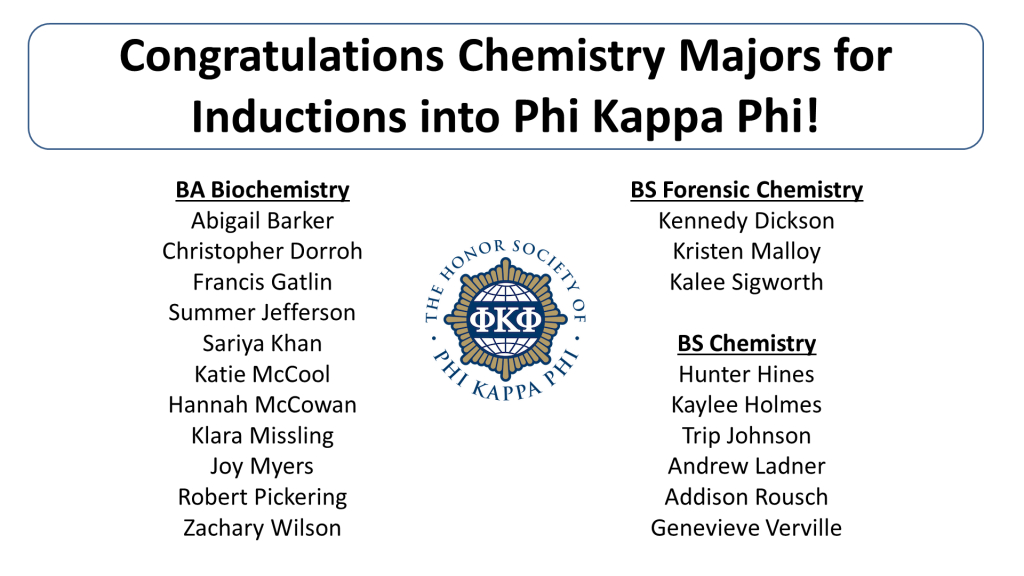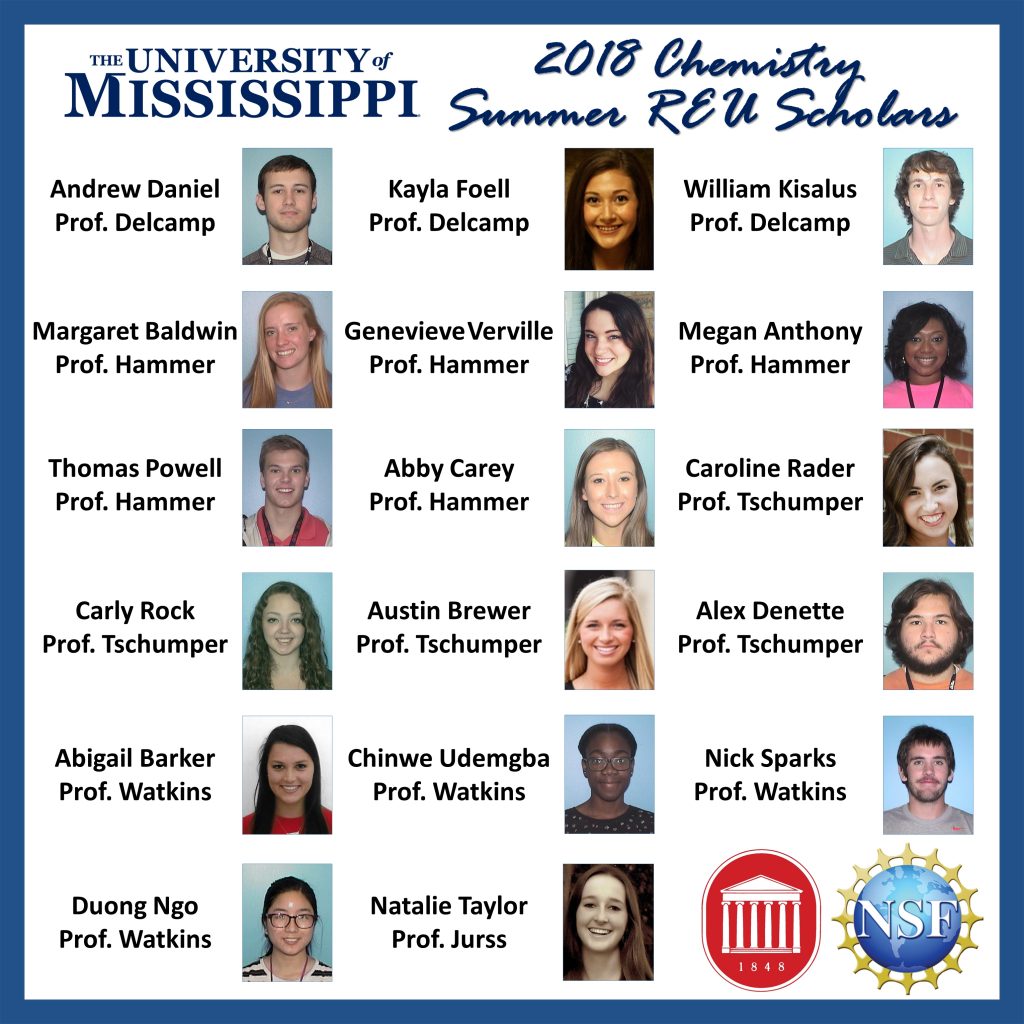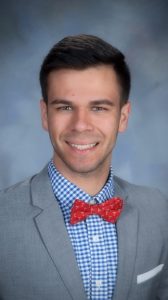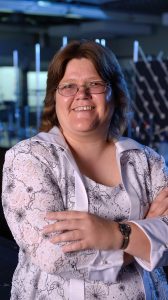Archive for the ‘Chem News and Events’ Category
Chemistry Majors Named Stamps and McDonnell-Barksdale Scholars
Seven members of the 2018 freshman class at the University of Mississippi have the distinction of being Stamps Foundation Scholarship recipients. The Stamps Scholarships at Ole Miss are the most comprehensive, full scholarship packages for in-state and out-of-state students. This year’s cohort is: Shahbaz W. Gul and Qihang “Jeffrey” Wang, of Oxford; Gregory Vance, of Jackson; Melvin “Richard” Springer IV, of Biloxi; Grace Louise Dragna, of Mandeville, Louisiana; Grace Elizabeth Marion, of Levittown, Pennsylvania; and Valerie Quach, of Austin, Texas. “This gifted class of UM Stamps Scholars contributes to our exceptional track record of attracting and retaining the best students from around the state and the nation,” Chancellor Jeffrey Vitter said. “We’re very grateful for the generosity of the Stamps Family Charitable Foundation. Our partnership with them provides nationally competitive scholarships and enables extraordinary enrichment opportunities for high-achieving students.” Wang said he sees the Stamps Scholarship at Ole Miss as the perfect balance between a fantastic, focused education and a big public school experience. “The Stamps Scholarship Program provides big opportunities for networking with other student scholars,” said the biochemistry major and a member of the Honors College, Global Ambassadors and the American Chemical Society. “The Stamps family is very kind, courteous and professional, and I am very appreciative for all they’ve done.” Wang’s goals include doing research in both analytical chemistry and environmental sciences. Launched in 2006 by Georgia native Roe Stamps and his wife, Penny, the program has grown to include nearly 40 partner schools throughout the country.
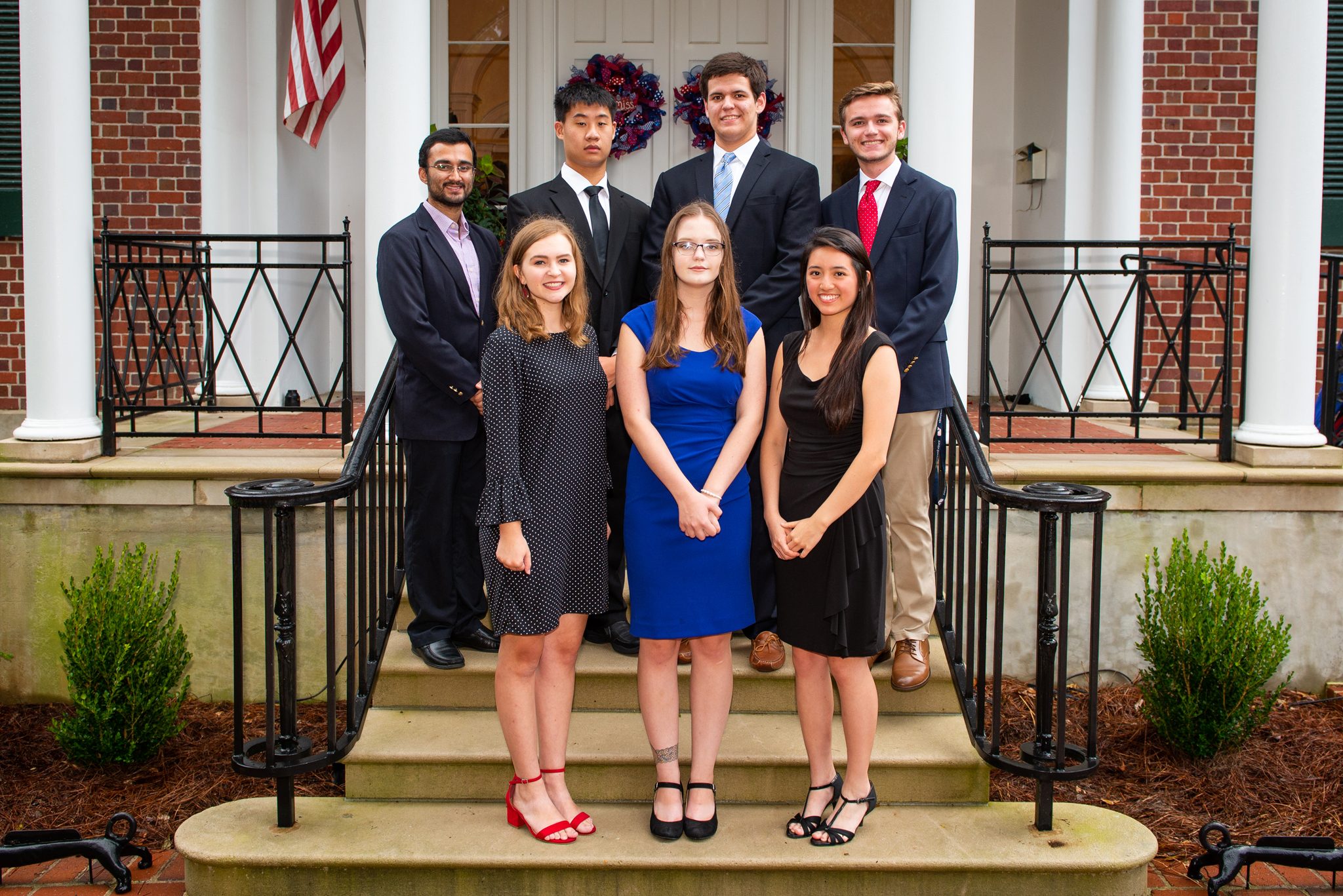 |
| The 2018 cohort of Stamps Scholars at UM is: (front row, from left) Grace Dragna, Grace Marion and Valerie Quach, and (back row) Shahbaz Gul, Jeffrey Wang, Gregory Vance and Richard Springer. Photo by Bill Dabney/UM Foundation |
Two chemistry majors received the prestigious McDonnell-Barksdale Scholarships this year. These are Qing Yun Li of Oxford and Kayci Bearden Kimmons of Batesville. Li is a graduate of Oxford High School, where she was concert master of the OHS Orchestra, which she played in for four years, and received awards in AP chemistry, geography, and anatomy and physiology while being named to the National Honor Society, Beta Club, Anchor Club and LOU Orchestra. She also made the Principal’s List Honor Roll all four years and was a volunteer with the Oxford-Lafayette Humane Society, Oxford-Lafayette County Library and Memory Makers. A graduate of Mississippi School for Math and Science, Kimmons was a Regional Science Fair finalist; member of the marching band, Student Council, National Honor Society, Student Government Association and Technology Student Association (regional/state winner); and earned awards in Spanish, regional spelling bee, Honor Roll-All A’s, Beta Club (regional/state winner) and second-highest average. She also volunteered at the Boys and Girls Club and the Convoy of Hope and was a chemistry tutor.
 |
| Douglass Sullivan-Gonzalez (right), dean of the Sally McDonnell Barksdale Honors College, meets with Honors scholars (from left) Autumn Fortenberry, Brithney Ngo, Ella Endorf, Ivy Li, deYampert Brame Garner II, Kayci Kimmons, Ajah Singleton, Emily Wright, Samuel Starr, Arabella Hamm, Kaden Spellmann, Hayden Williamson and Andrew Gardner. |
State of Mississippi Awarded $20 Million to Establish Center for Emergent Molecular Optoelectronics (CEMOS)
State of Mississippi Awarded $20 Million to Establish Center for Emergent Molecular Optoelectronics (CEMOS)
A $20 million, five-year grant from the National Science Foundation will spur creative discovery and economic opportunities through Mississippi’s research universities. The University of Mississippi will receive about $5.5 Million in funding. Profs. Tschumper, Hammer, Delcamp, Watkins, and Jurss in the Department of Chemistry & Biochemistry.
With the grant funding, the state of Mississippi will establish the Center for Emergent Molecular Optoelectronics, an inter-disciplinary, multi-institution materials research program. Mississippi State University (MSU) will serve as the project’s administrative lead, and the University of Southern Mississippi (USM) will serve as the science lead. Along with MSU and USM, Jackson State University (JSU) and the University of Mississippi (UM) will be a part of the new center, which will facilitate the development of research capabilities and educational opportunities in the growing optoelectronic, energy and biotechnology research fields.
The NSF grant comes through the organization’s EPSCoR (Established Program to Stimulate Competitive Research) program, which enhances the research competitiveness of states and jurisdictions by strengthening STEM capacity and capability.
“This initiative will be a tremendous benefit to the people of Mississippi and to our research universities,” MSU President Mark E. Keenum said. “Increasing our university research capabilities makes our state and our institutions more competitive, increases educational opportunities and keeps us at the forefront of emerging technologies. This new center and its focus on organic semiconductors will make existing Mississippi industries more competitive and help the state attract new companies. I am proud that MSU is playing a lead role in this endeavor.”
MSU Vice President for Research and Economic Development David Shaw is the principal investigator and project director for the grant. Sarah Morgan of USM is the science director. Co-principal investigators include Jason Azoulay from USM, Jared Delcamp from UM and Glake Hill from JSU.
“I am so pleased that the National Science Foundation selected our faculty as the science lead for this important project,” said University of Southern Mississippi President Rodney D. Bennett. “With USM’s Center for Optoelectronic Materials and Devices serving as the mission center for this grant, our internationally-renowned polymer science and engineering experts look forward to partnering with Mississippi’s other research institutions as they examine far more complicated processes than ever before. I am confident their work will impact our communities positively for many years to come.”
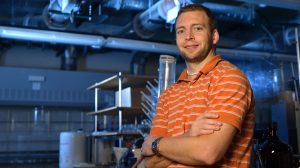
Prof. Jared Delcamp is co-PI on the $20 Million NSF grant to create the new Center for Emergent Molecular Optoelectronics (CEMOS)
The Center for Emergent Molecular Optoelectronics will develop new, unified research methodologies on organic semiconductors, an area that is vital to the advancement of diverse areas such as technology, electronics and biomedicine. To facilitate the research, the center will establish state-of-the-art research instrumentation for common use across the state and support collaborative research among institutions. The new scientific infrastructure will fill a void for the state and facilitate advanced basic and applied research.
“The University of Mississippi is pleased to be a member of this dynamic, multi-institutional team for the Center for Emergent Molecular Optoelectronics and help develop pivotal research capabilities that will be benefit Mississippi, our nation and the world,” said UM Chancellor Jeffrey S. Vitter. “This initiative will bolster collaborative research efforts and continue pioneering STEM workforce development, which is critical for attracting high tech industry to the state.”
New optoelectronic functionality developed by center research will support the basic knowledge necessary to bring new technologies to reality, resulting in new intellectual property and potential job creation.
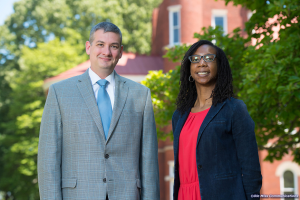
Profs. Nathan Hammer and Davita Watkins are participants in the new Center for Emergent Molecular Optoelectronics (CEMOS)
“Jackson State University is elated to be a partner of this groundbreaking venture for the state of Mississippi and Historically Black Colleges and Universities,” said Dr. William B. Bynum Jr., president of Jackson State. “It is my hope that we continue to expand on these opportunities to spur economic growth for Mississippi and enhance educational opportunities for our students.”
The new center will benefit from connections to national laboratories, NSF Top 100 research universities, state development officials and representatives from industry. The grant will also fund K-14 outreach efforts aimed at creating a stronger, more diverse pipeline of STEM students.
“The grant from the National Science Foundation demonstrates the incredible capabilities housed within our research universities,” said Dr. Alfred Rankins Jr., Commissioner of Higher Education. “Working together, these capabilities are amplified. The research conducted through this grant will put Mississippi on the forefront of emerging technologies.”
See also:
http://www.jsumsnews.com/?p=37127
Advice from a Recent Successful Pre-Med Chemistry Major
Advice from a Recent Successful Pre-Med Chemistry Major
Austin Carroll graduated from the University of Mississippi Department of Chemistry and Biochemistry in the Spring of 2018 with a B.A. in Biochemistry degree. He was fortunate to receive interviews and acceptances from a number of medical schools including Georgetown, Tulane, the University of Mississippi, and the Mayo Clinic. He started as a first year medical student in the fall of 2018 at Georgetown University. According to the US World News, the average acceptance rate of US medical schools was a staggering 7% in the 2017-2018 school year. This number drops even lower at prestigious, private medical schools like the Mayo Clinic, Georgetown, Emory, or Harvard where the average rate hovers between 1.4% to 2%. It thus comes as no surprise that applicants must set themselves apart and build a resume with extraordinary characteristics. As generally science-minded, type A individuals who like to accomplish specific goals, gaining these “extraordinary” experiences is no easy feat. Many students simply say “well, just tell me what I need to do, and I’ll do it.” The problem with this logic is that this set path just doesn’t exist. There is no exact major, GPA, MCAT score, or collection of extracurricular activities that are guaranteed to gain one acceptance into medical school. Austin learned this over the course of his four years in college and he spent a lot of undirected and anxious energy looking for the nonexistent picture-perfect opportunities that would guarantee him an acceptance. Below are Austin’s recommendations on how to best approach being pre-med at the University of Mississippi.
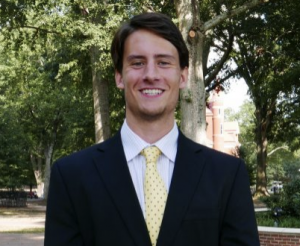
Austin Carroll Graduated from the Department of Chemistry & Biochemistry in 2018 and went to Medical School at Georgetown University
“Through the process, I learned that the key lies in finding what you are passionate about and participating in opportunities that reflect this passion to your fullest ability. With regards to medical school, it is specifically important that this passion is reflected in service to other people. I’ve detailed my path here in hopes that you will use it as an example as you create your own. I looked around anxiously my freshman year but found little to nothing until I came across a summer medical mission trip to Lima, Peru with an organization called MedLife on campus. To be honest, I had no idea what the trip would be like, but I thought it would be a good chance to see another part of the world and to participate in medicine. Once there, I immediately recognized that I had a passion for serving those in communities that faced poverty and health inequalities. When I returned to Mississippi, I saw a vast need for this type of service all around me, and I began searching for opportunities. I soon began volunteering at Oxford Medical Ministries Clinic, a free clinic for those in poverty, and spent my summers and winter breaks working as a patient transportation technician at Baptist in Jackson. I also applied for a two-year program on campus called the Catalyzing Entrepreneurship and Economic Development (CEED) program with the McLean Institute but felt almost sure that I would not be accepted. With so little previous service experience compared to others applying, why would they want me in the first place I thought? To my surprise, however, I received a call a few weeks after my interview and had been placed in the program. This is where things really began to move. With this program, I was able to learn about the effects that health care (or the lack thereof) has on the Mississippi economy and how we can use education and entrepreneurship to combat poverty. As part of completing my CEED requirements, I was able to take the knowledge I had learned and to create a four-week summer program for 5th-8th graders based on chronic disease prevention, general health and wellness, financial literacy, and career readiness. I then reached out to and worked with numerous organizations across Mississippi as I taught the CEED program to fifteen students in the Mississippi Delta.
While I can only speculate, I believe it was this [CEED] opportunity that really solidified my “extraordinary” path and gave me the ability to tell my unique story of discovering and carrying out my passion for serving others. Overall, I was able to demonstrate leadership, a passion for service to those in need, and the capacity to work well with others in my personal statement and secondary essays and how those things translate into becoming a great physician. Sure, I also had the standard things that any pre-med advisor worth their salt will tell you to have like research, volunteering at the local kid’s club, a significant amount of shadowing, a study abroad experience, TAing experience, and a great GPA and MCAT. All these things on their own simply aren’t good enough anymore, though. You must have something that differentiates you and allows you to craft powerful essays because those are the things that get you an interview at Harvard or Georgetown (or insert name of “prestigious” private school).
I would also like to encourage you by saying that each of my opportunities came after being turned down numerous times by other clinics, hospitals, and volunteer organizations. The supply of willing and gifted students is greater than the demand, but I promise you the opportunities are out there. You just have to be passionate and persistent, and you will be given sufficient chances over your time in college. So don’t worry so much about choosing the major that will give you an advantage or copying the exact route of extracurriculars that your friend “X” completed to get into “Y” school. Find what you’re passionate about and then pursue opportunities that allow you to translate that passion into service to others, so when application time rolls around you will have a unique story backed up by concrete experiences to tell the admissions committee.”
Professor Delcamp Receives Major Grant from Department of Energy
Professor Delcamp Receives Major Grant from Department of Energy
OXFORD, Miss. – A highly selective $750,000 grant from the U.S. Department of Energy’s Office of Science will continue funding a University of Mississippi professor’s research into improving solar energy technologies.
Jared Delcamp, an assistant professor of chemistry and biochemistry, has been awarded the grant funding through the department’s prestigious Early Career Research Program.
The award will support Delcamp, along with a post-doctoral student and a graduate student, in their research to better understand how to use high-energy visible light efficiently in relation to solar energy.
Delcamp was among 84 scientists this year from across the nation – including 54 university researchers – to receive a research grant through the program, which is in its ninth year.
“It is very exciting to me to get an Early Career Research award,” said Delcamp, who joined the UM faculty in 2013. “The division it is coming from is full of the best solar energy researchers in the U.S.
“It is a fierce competition to become part of the group, and I’m honored to be a part of it. I’m excited to start contributing research progress to the division.”
The Early Career Research Program is designed to develop the individual research programs of outstanding scientists at universities and Department of Energy national laboratories early in their careers and stimulate research careers in the disciplines supported by the department’s Office of Science.
No more than 10 years can have passed between the year the principal investigator’s Ph.D. was awarded and the year of the deadline for the proposal. A native of Monticello, Kentucky, Delcamp graduated from the University of Illinois at Urbana-Champaign with his doctorate in chemistry in 2010.
Delcamp is the first UM faculty member to receive the award.
“We are so proud of Dr. Delcamp’s accomplishments at Ole Miss,” said Josh Gladden, UM interim vice chancellor for research and sponsored programs. “Early Career Research awards are extremely competitive and a true mark of a faculty member who has established themselves quickly on the national stage. Dr. Delcamp’s research has enormous potential, and we can’t wait to see what he will do next.”
Delcamp runs the Delcamp Group, a renewable energy research lab at the university. The lab focuses on using sunlight to separate charges across two materials, Delcamp said.
With sunlight energy being wasted in the visible region just after the ultraviolet region in a lot of solar technologies, Delcamp’s research is studying ways to stop this loss. New discoveries in this field potentially could improve dramatically technologies used in the fields of solar cells, direct solar-to-fuel devices and solar-powered batteries.
Since joining the Ole Miss faculty, Delcamp has won several awards and grants, including a National Science Foundation CAREER Award in 2015, several NSF awards and a NASA Research Infrastructure Development award.
“Dr. Delcamp’s research is addressing a major unmet need for improved efficiency in capturing and converting solar energy,” said Allyson Best, director of the university’s Office of Technology Commercialization. “The university has filed patent applications covering novel chemistry discovered in his laboratory and has received very promising feedback from potential commercial partners.”
In 2017, Delcamp received a Michael L. Edmonds New Scholar Award, presented annually to junior faculty at UM demonstrating exemplary performance in research, scholarship and/or creative achievement.
The funding allows Delcamp to focus on training the best scientists possible while making important discoveries that are being recognized internationally, he said.
“We have been atypically successful in terms of funding,” Delcamp said. “We use our funding very carefully to ensure important experiments are being done and science is being progressed responsibly.
“This level of funding being used responsibly has allowed us to focus on how to best solve a science problem rather than a funding problem. This is incredibly freeing in terms of mentoring students and getting research done.”
Delcamp’s project, titled “Controlling Interfacial Charge Separation Energetics and Kinetics,” is funded through DOE grant No. DE-SC0019131, which runs through Aug. 31, 2023.
Click Here for the original story by Shea Stewart.
Professor Cizdziel Receives Major Grant from USGS
Professor Cizdziel Receives Major Grant from USGS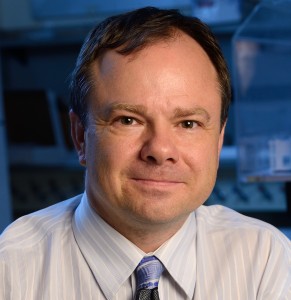
OXFORD, Miss. – Congratulations to Dr. Cizdziel for a $220,000 grant award from the USGS to study microplastic pollution in the Mississippi River System and at Oyster Reefs in the Mississippi Sound. This is the first time that Mississippi has received this highly competitive award. In the 3 year project, Dr. Cizdziel and graduate student Austin Scircle will systematically quantify the concentrations and loads of microplastics and characterize their shapes, size distribution, and chemical composition in the Mississippi River System—a source of drinking water to over 18 million people, and at oyster reefs along the Gulf Coast. They will also determine the role microplastics play in the transport and fate of Hg species in aquatic systems by conducting fundamental studies on the uptake/leaching of methylmercury with the particles
Professors Hammer and Watkins Receive Research Awards
Professors Hammer and Watkins Recognized during Commencement Exercises for Research Awards
OXFORD, Miss. – Two chemistry faculty members in the University of Mississippi’s College of Liberal Arts were recognized for their creative research and scholarly activity during the 2017-18 academic year. Prof. Davita Watkins received the Dr. Mike L. Edmonds New Scholar Award for junior faculty and Prof. Nathan Hammer received the College of Liberal Arts Award for Research, Scholarship and Creative Achievement for senior faculty.
The awards, both of which are in their second year of existence, include medals and stipends of $1,000 and $2,000 respectively. They were presented May 12 during the college’s Commencement exercises.
The Edmonds Award is presented annually to untenured, tenure-track professorial rank faculty members who are within six years of their initial academic appointment and who have demonstrated exemplary performance in research, scholarship and/or creative achievement. Recipients of the Award for Research, Scholarship and Creative Achievement have achieved scholarly recognition and influence well beyond the university.
“These award recipients are among the very best scholars at the University of Mississippi, and we celebrate their success,” said Charles Hussey, associate dean for research and graduate education and professor of chemistry and biochemistry who served as chair of the selection committee.
The first African-American female tenure track professor hired in the Department of Chemistry and Biochemistry, Watkins received a prestigious National Science Foundation CAREER Award for $499,593 for work she has completed at the university, her creative ideas for future research activities and her strong teaching credentials. Her most recent research endeavors received $95,000 in joint support from the United Negro College Fund and Merck.
Watkins also helped cultivate several close collaborations with internal research groups at UM and with external groups at St. Jude Children’s Research Hospital, the Universidad Nacional de Colombia, Oak Ridge National Laboratories and the University of California at San Diego.
Hammer, an associate professor of chemistry and biochemistry, has served as principal investigator on five grants from the National Science Foundation totaling more than $7 million. These include an NSF CAREER Award, a Research Experiences for Undergraduates Site and a major instrumentation award. He served the state’s National Science Foundation EPSCoR program as Track 1 senior personnel and program architect and Track 2 program director.
A UM research development fellow, Hammer developed and directs his department’s summer research program. He also co-organized the 50th annual Southeastern Undergraduate Research Conference in 2018 and has delivered three invited talks at national American Chemical Society meetings.
This year’s honorees are exceptional, and their work reflects the goals for which the awards were created, said Lee M. Cohen, dean of the College of Liberal Arts and professor of psychology.
“As a Carnegie R1 university, it is important that we publicly recognize and reward our most productive faculty for their sustained efforts in research, scholarship and creative achievement,” Cohen said. “I hope the recent establishment of these awards will help us to elevate our productivity moving forward.”
Click here to see the original May 23, 2018 article by
